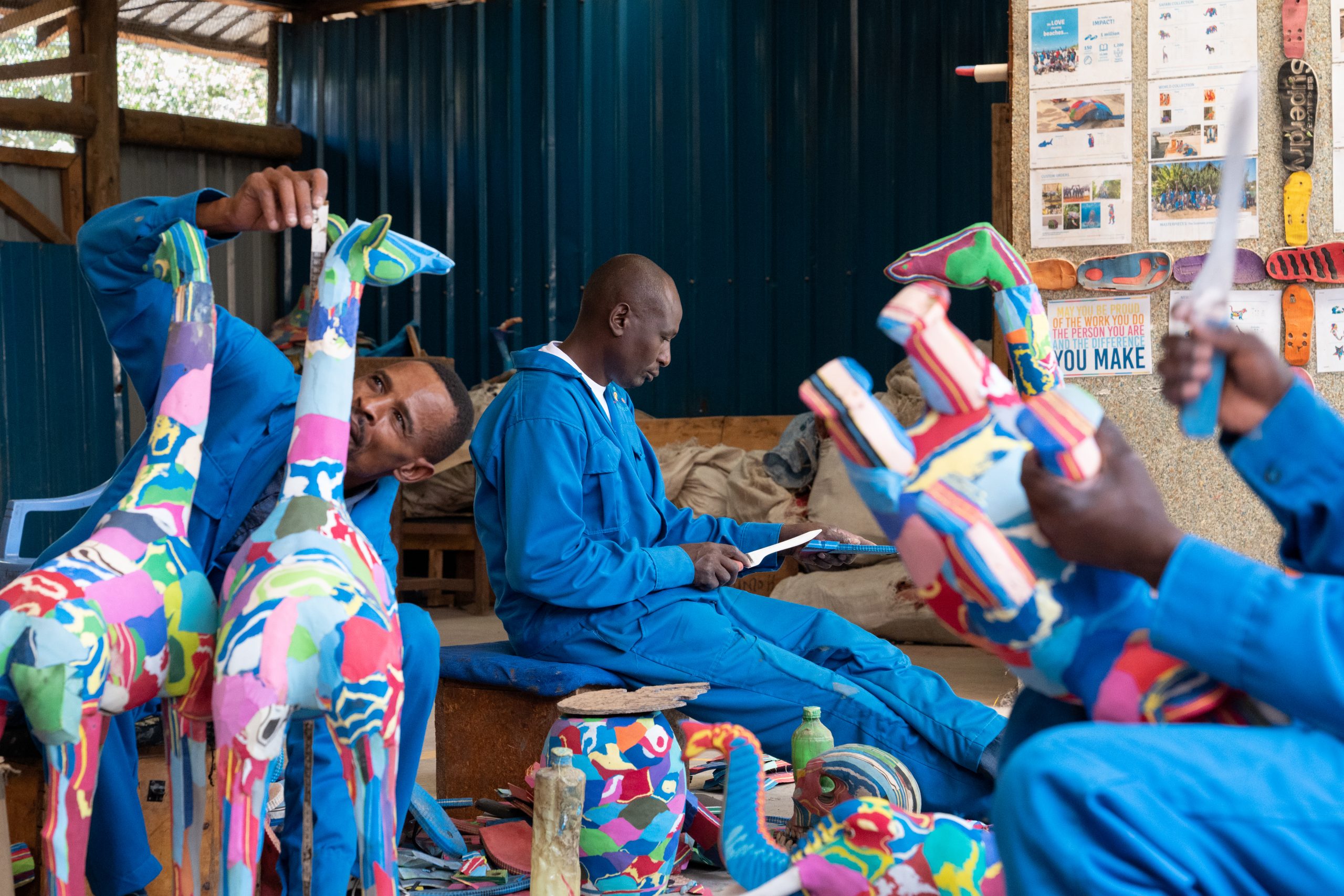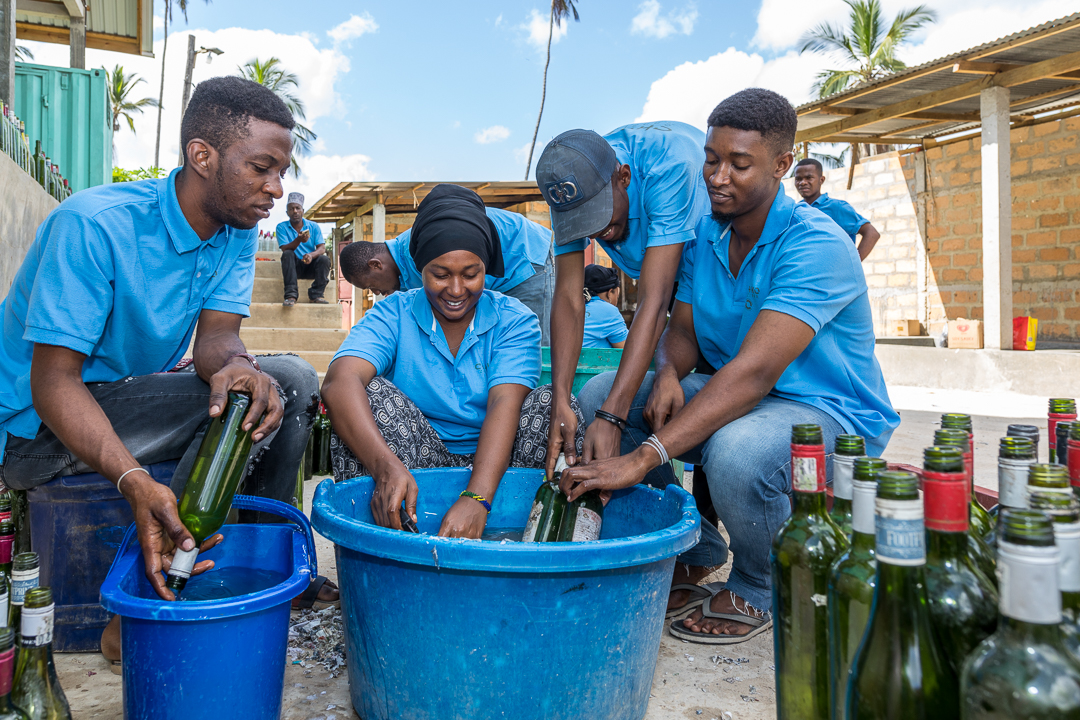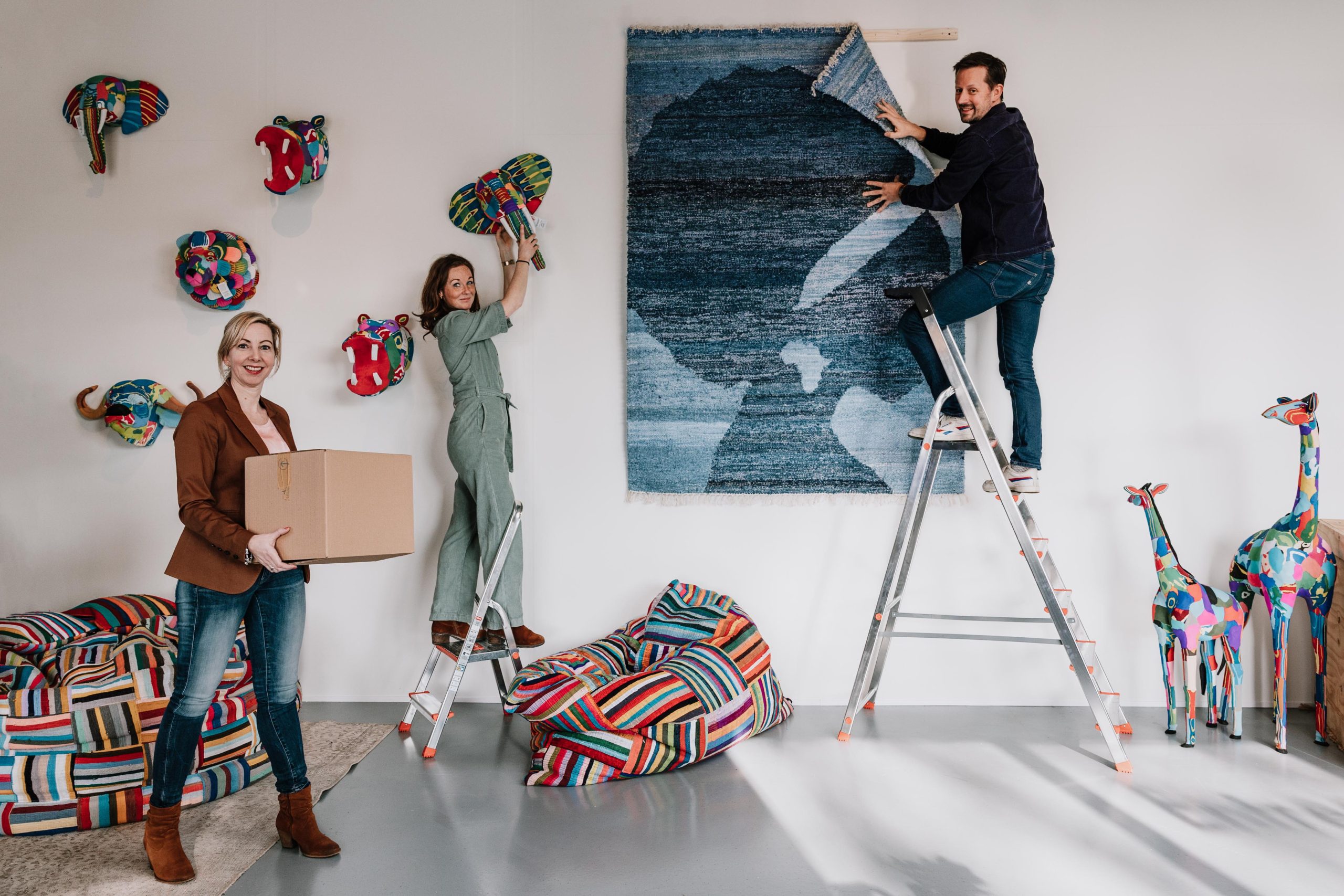Transforming Lives, Economy, and the Environment with African Artisans
Once upon a time, in the heart of Kenya, two brothers, Nicholas and Michael Ninaber van Eijben, stumbled upon a unique opportunity that would change their lives and those of many others. This is the story of Nic&Mic: The Art of Upcycling, a venture that began with a simple desire to make a positive change in the world.

From Hobby to Social Enterprise: A Journey with Ocean Sole
It all started with Michael’s internship at the Netherlands Embassy in Kenya, where he encountered Ocean Sole, a company crafting art from discarded flip-flops that their team collected on Kenyan beaches. Despite the media attention surrounding Ocean Sole’s eco-friendly initiatives, the company faced challenges in sales. Nicholas and Michael stepped in by initiating a crowdfunding campaign, propelling Ocean Sole into success. What began as a hobby evolved into Nic&Mic, a social enterprise committed to supporting circular businesses in Africa.
Learning from their experience with Ocean Sole, the brothers expanded their efforts, collaborating with other social enterprises on the continent, such as Africa Collect Textiles (ACT) in Kenya and Chako Zanzibar in Tanzania, alongside Ocean Sole. Nic&Mic operate as ‘boxmovers’, buying products from their local partners and selling them across Europe, ensuring fair compensation and respecting the partners’ business models.
Their commitment extends beyond transactions; they actively engage in supporting the growth and sustainability of their partners’ businesses. Nicholas explains: “We respect their business model and their business ideas by ordering their products by the container, paying them in advance, and reselling the products in Europe with a margin. In addition, we support operations with machinery, marketing advice, and problem-solving on the ground.”
Local Artisans and Their Dreams: A Symphony of Intercontinental Partnerships
Headed by its two founders, Alex Musembi, a Kenyan native, and Elmar Stroomer, born in the Netherlands, ACT tackles the challenge of clothing waste by refurbishing old jeans and uniforms into stylish backpacks, baskets, and rugs. The company was born out of the necessity to do something about the huge amount of clothing waste coming from the global north to the global south with detrimental impact to both the local environment and economy. On the one hand, the trashed clothes are ending up in local landslides and rivers. On the other hand, this waste stream of clothes hinders African countries from developing their own circular clothing system. With a vision for a circular clothing industry in Kenya, ACT aims to reduce the environmental impact of textile waste while creating job opportunities.
Ocean Sole, known for its unique upcycled art made from discarded flip flops, not only cleans beaches but also transforms waste into vibrant sculptures, with the leftover materials used in mattress filling for refugees.
Chako Zanzibar addresses the issue of imported waste to Tanzania, particularly glass bottles. Collecting bottles from hotels and dumpsites, Chako Zanzibar turns them into glassware, exemplifying how waste can be transformed into beautiful and functional homeware.
Nic&Mic’s Socially Responsible Business Model
Nic&Mic’s ultimate mission is ambitious: to employ 2,500 Africans in the upcycling industry by 2035. Their dedication to social responsibility is evident in the genuine partnerships they forge, avoiding the pitfalls of exploitative pricing and championing the flexibility and adaptability of their local partners.
Nicholas’s journey adds depth to Nic&Mic’s mission. Before co-founding Nic&Mic, he was working for an event agency eager to change the world of events by making them sustainable and socially responsible. He quickly realised that he was predominantly used as the ‘Green Front Man’ pitching an allegedly sustainable nature of the events. Afraid to make the harder sustainable choices, Nicholas’s boss offered the potential client all kinds of less sustainable “escapes’’, recalls Nicholas. These greenwashing activities made him literally ‘sick’.

He explains: “My motivation was to make a positive change in the world. But I could not do that, so I quit my job.” Coincidentally, this was the time when his brother Michael returned from his internship in Kenya and the brothers decided to start Nic&Mic.

An example that illustrates Nicholas’ intrinsic motivation, is the story of Margaret Amimo, a mother of four working for ACT. Through the sale of the upcycled African Queen Rug that Margaret crafts for ACT, she transformed her life, allowing her to live together with her children near the workshop and provide for their education. “Knowing that every time I sell this rug, I contribute to her new life situation, gives me a tremendously good feeling simply because I am making a positive change for somebody,“ underscores Nicholas.
Joining NABC: Adding a New Chapter to the Tale
“The reason why we joined the NABC as a member, is the NABC network,” states the entrepreneur. By becoming a part of the NABC network, Nic&Mic aims to further their reach, sharing their affinity for African business with a broader audience and generating more work for local artisans.
Nic&Mic’s journey from a crowdfunding initiative to a social enterprise showcases the power of business to drive positive change. Through genuine partnerships, responsible practices, and a commitment to social impact, Nic&Mic exemplifies a new wave of businesses striving for a better world, one art piece at a time.
To learn more about Nic&Mic, visit www.nicmic.nl/en/for-organizations/.


